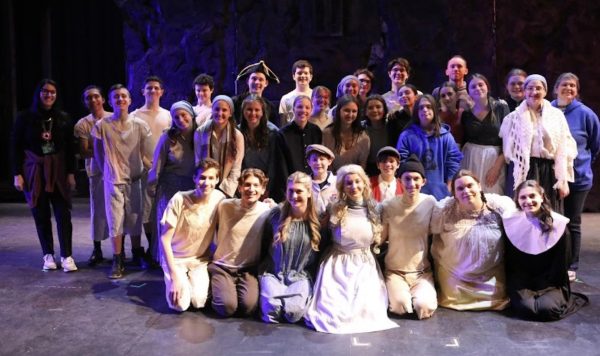Snapshots of Southampton: Journal Entries Making History
Past President of the Southampton Historical Museum Hilary Herrick Woodward and current curator Emma Ballou have created a beautiful way to capture the essence of life in Southampton, through journal keeping. There are currently about 57 people involved in this project, but Ms. Woodward and Ms. Ballou hope for more to get involved.
The project includes writing two or more sentences in a journal daily concerning anything that happened during their day, no matter how trivial it seems. From grocery shopping to talking a walk in Agawam Park, these comings and goings are noteworthy for future generations. By the summer of 2016, Ms. Ballou and Ms. Woodward hope to take the entries they receive and store them in the museum’s archives for future historians in celebration of the 375th anniversary of the Historical Museum, and in memory of James Harvey Foster.
James Harvey Foster, a common man living in the town of Southampton during the 1830’s, inspired Woodward and Ballou to create this project. Foster kept a daily journal, consisting of his everyday occurrences such as attending school, cutting wheat or hay, and foddering. Because these activities were typical for the time period in which Foster lived, it has enabled historians today to understand the details of life in the 1830’s. As one compares time periods, we find just how much our societies have changed. “There are nearly no journals from women in the 1830’s.” Ballou explains. This is an example of how different our social structure is today. These entries provide details like place in society, gender, and age, all-important factors needed to investigate the culture of an era.
Ballou describes these occurrences as “breadcrumbs” – little snippets of information that help historians get more insight into social structure. “Journals provide an inside look into the every day,” Ballou states excitedly. “It’s not always about war, or politics.” These daily occurrences are just as important to future historians; “A blurb about what somebody ate, and what games they played carries so much weight and provides a deeper understanding into what life is like.” Ballou says. “Each entry is like a collection of clues.”
It’s no mystery that social media is tightly interwoven with our society today. Social networking is something that has proven to be a massive shift in society compared to James Harvey Foster’s time. “There’s so much pressure and racing around today.” Ballou notes, “Journaling has a connotation of not being very cool. It takes time and the patience to slow down, take a breath, and reflect.” Social media is an example of our desire for instant gratification and acceptance. The societal pressures and hobbies of today are very different from Foster’s. A probable journal entry for today would most likely be the journal keeper describing how he or she wrote for their blog, sat on the computer researching for work, and looking up a recipe on Google for dinner. Through journaling, historians can discover what life was like in our time.
Ballou and Woodward’s major goal for this project is to exhibit the “real Southampton” and the uniqueness of the people in it to historians of the future. “I’m excited to see the then versus now and variety of people and personalities.” Ballou exclaims. “The personality of Southampton is very different to what people perceive. We’re hoping this project will capture the ‘real’ Southampton.” On her own experience Ballou explains what she specifically loves about the project; “I enjoy most how this project covers every facet: education, community building, events and exhibits.” On keeping her own journal, Ballou describes her routine: “I do a sketch a day. I write about what I’m leaving behind and what I would be interested in leaving behind.” Journaling is a very vast and personal experience, so the content of them will vary from person to person.
This is a very special project, not only for Ms. Ballou and Ms. Woodward, but also for the Southampton community. It’s a chance for the town to make history, and be a bookmark to reflect upon in our time. Each of Foster’s entries ended in the “poetic” phrase, “So ends these 24 hours”. No matter how one chooses to spend them, they are more valuable than gold.
To sign up or for any questions, please contact Emma Ballou, Curator & Registrar at [email protected]

Gemma is a senior at Westhampton Beach High School from Southampton, and is new to The Hurricane Eye this year. She loves creative writing, psychology,...







